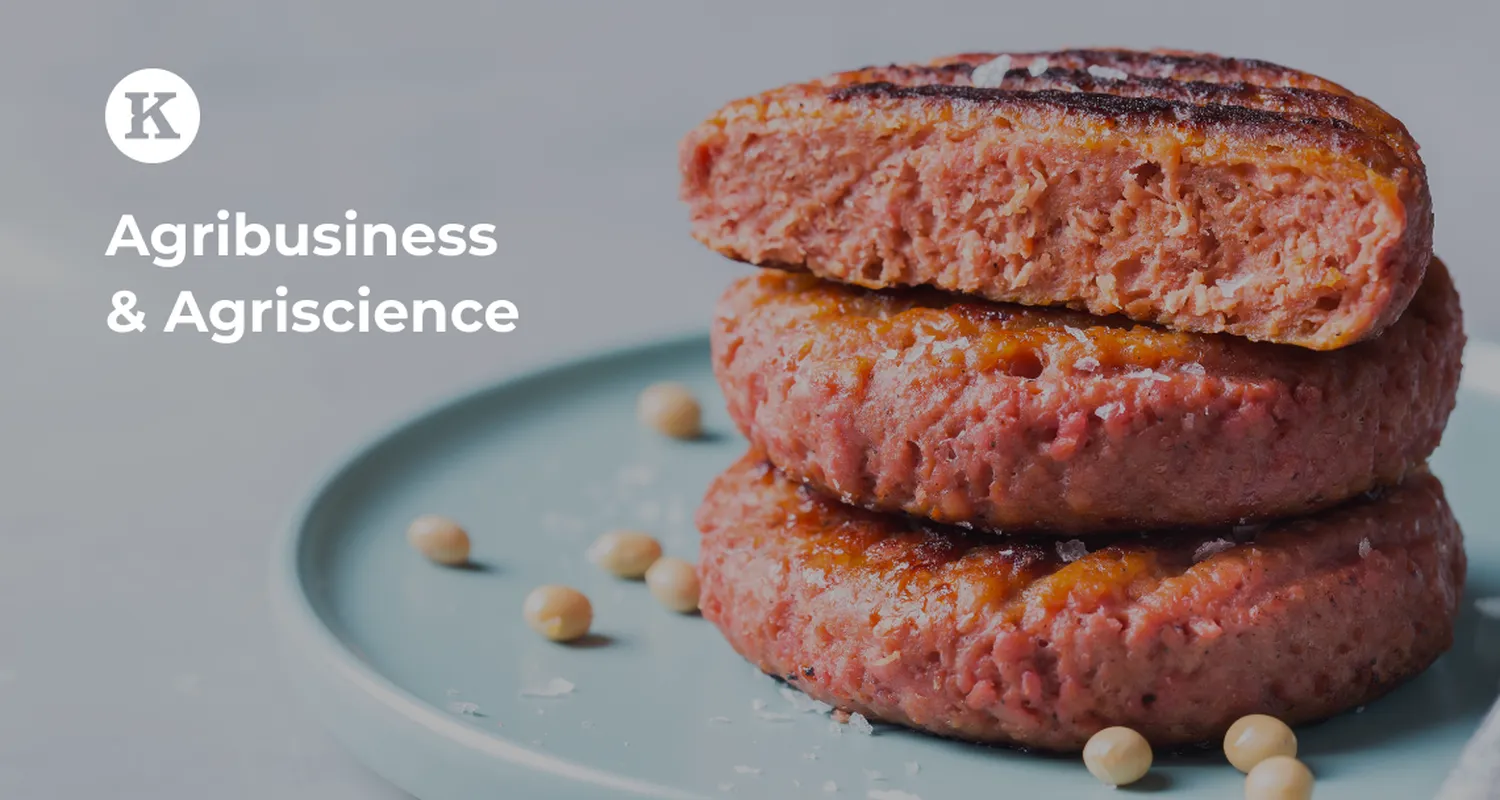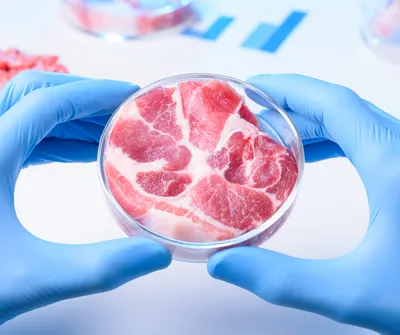By adopting innovative protein sources, the Agribusiness sector is poised to contribute significantly to global food security, driving a more resilient, sustainable future in food production. The Kestria Agribusiness & Agrisciences Practice Group has gathered respected experts from diverse fields to explore this evolution.
Key takeaways:
- Innovative Protein Production: Companies are developing alternative protein sources, such as cultivated meat, algae, insect proteins, and mushrooms, addressing challenges in scalability, ingredient efficiency, and consumer acceptance.
- Consumer Education: Overcoming consumer resistance, especially to products resembling traditional meats, requires education. Companies are focusing on familiar ingredients and clear labeling to build trust and acceptance.
- Partnerships and Funding: To scale, these companies are forming partnerships and securing private equity and government funding, helping overcome technical barriers and driving long-term growth in the alternative protein market.
Meet the innovators
Dr. Daniel Peters, Co-Founder and CEO at MarraBio, UK, leads a startup specialising in developing tools to enhance the economic viability of cultivated meat production. Cultivated Meat involves growing animal cells, specifically fat and muscle cells from various species, to create alternatives to traditional meat products. The aim is to produce products that closely resemble conventionally farmed meat but are cultivated in bioreactors instead of being derived from animals. The company, founded in February 2023, emerged from academic research on a specific protein, called Caf1. MarraBio has commercialized this research and built it into a platform technology, offering engineered alternatives to the reagents used in large-scale manufacture of mammalian cells, including for cultivated meat, that are more potent, free from animal material and at substantially lower cost and greater scale. MarraBio’s first products reached the market in June and they are now exploring approaches to expand further.
Ludovic d’Otreppe, CEO at Algama, Belgium, leads a French-based organisation specialising in the development of alternative proteins. ‚Currently, our focus is on creating algae-based alternative ingredients to replace eggs in bakery and pastry applications. This endeavour is particularly compelling, as algae are recognised as an exceptional source of alternative protein, though they remain a complex raw material to utilise effectively. Typically, algae are used as whole ingredients across various applications. Algama's goal is to break through algae cells and extract their valuable constituents.’
Jeroen van der Staay, CCO and Chief Growth Officer at Protix, The Netherlands, represents the world's leading insect ingredient producer. Protix, produces the black soldier fly, a highly versatile insect. Once reared, the insect is processed into two main ingredients: insect meal and insect oil, which are used in various types of animal feed, including for pets, aqua nutrition and livestock, as well as human nutrition, which is still pending regulatory approvals in the EU. We currently sell insect meals to the European pet food industryand since last year, Protix has also entered the aqua nutrition market for salmon and shrimp. Recently, Protix partnered with Ahold, the largest retailer in the Netherlands, to supply insect meal as a feed ingredient for their shrimp.’
Gavin Schneider, Co-Founder and CEO of Maia Farms, Canada, oversees a company that produces nutrient-dense, mushroom-based food ingredients for food manufacturers, offering exceptional taste and texture. Customers use these ingredients in products like alternative meats, soups, snacks, sushi, pet food, chocolate and ice cream. The lineup features mushroom powders, textured proteins and a tofu-like mycelium ingredient, all rooted in biomass fermentation.
‚Sustainability is at the core of Maia Farms' mission. The company has developed a climate-smart approach ensuring its production process leaves a minimal environmental footprint. By leveraging biomass fermentation, Maia Farms has created a sustainable process that prioritizes resource efficiency, providing food manufacturers with ingredients aligned with the urgent need for future-proofed solutions in global protein production. Their goal is not only to transform the protein landscape but also to protect the planet for future generations.‘
Founded three years ago as an offshoot of the Deep Space Food Challenge, where it secured first place earlier this year, Maia Farms has a skilled team advancing fermentation technology. Focused on building sustainable infrastructure, the company has attracted global interest. Based in Vancouver, it operates facilities across Canada, including Calgary, Saskatoon and Prince Edward Island, with plans to expand internationally by 2025.
Andrew Yip serves as the Head of Research and Development and Head for Future Food (NPD & Production) at Monde Nissin, Singapore. The company focuses on producing alternative proteins in the 'weaker space' by utilising a proprietary ingredient, mycoprotein, derived from a microorganism - Fusarium venenatum. In Singapore, the approach involves a unique process that incorporates secondary fermentation. Furthermore, the HO technology complex is employed to integrate mycoprotein into tempeh in combination with soy and mushrooms. This approach creates a texture closer to the meat while remaining distinct from traditional tempeh.
‚In Asia, a different methodology is applied, using soy as a key ingredient, reflecting its cultural and culinary importance in the region,‘ says Andrew Yip. ‚Soy is prominently featured in alternative proteins, complemented by the nutritional fibre and protein of mycoprotein, and fermented using the HO fermentation technique to create tempeh. Mushrooms are added to enhance the umami profile. The range also includes tempeh-based items like patties and nuggets.‘





